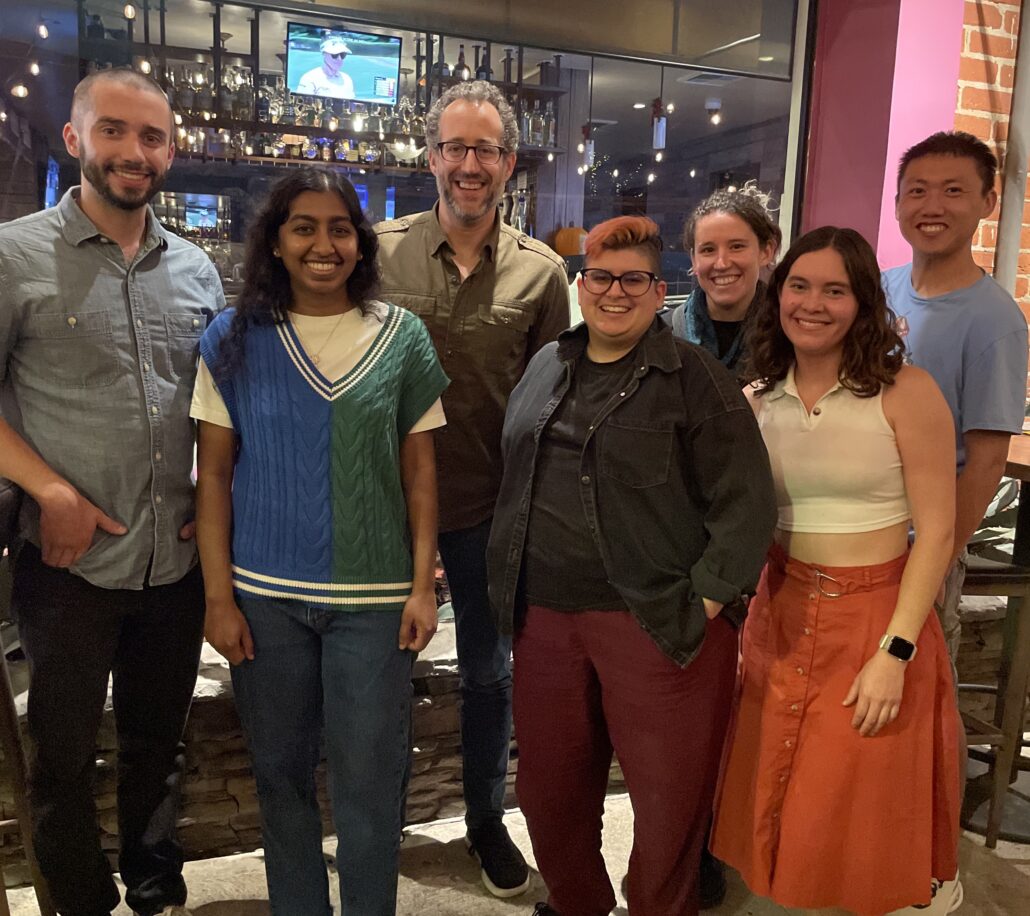
Principal Investigator:
Kirk Lohmueller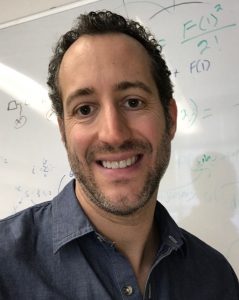
Kirk is a Professor in the Department of Ecology and Evolutionary Biology and the Department of Human Genetics at UCLA. He is broadly interested in evolutionary and population genetics and genomics. Prior to joining the faculty at UCLA in 2013, he was a Miller Fellow at UC Berkeley where he worked with Rasmus Nielsen. Kirk received his PhD from Cornell University where he worked with Andy Clark and Carlos Bustamante.
Follow Kirk on Twitter!
Graduate Students:
Jon Mah 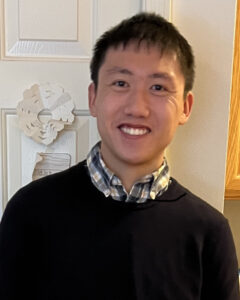
Jonathan Mah (he/him) is a PhD student in the Bioinformatics Interdepartmental Program co-
advised by Professor Kirk Lohmueller and Professor Nandita Garud. Jon graduated from the University of Washington with a B.S. in Biochemistry and Microbiology, where he studied quantitative models for protein evolution in RNA viruses. His research interests lie at the intersection of population genetics, mathematical evolution, and microbiology. His current work focuses on developing and applying population genetics tools and techniques to the Human Microbiome.
Swetha Ramesh
Swetha Ramesh is a PhD student in the Bioinformatics Interdepartmental Program. Swetha 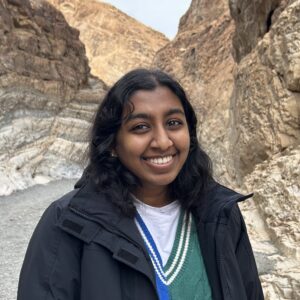 graduated with a B.S. in Molecular and Cell Biology and a minor in Computer Science from UC Berkeley. Before joining UCLA, she studied copy number variation in the great apes as an undergraduate researcher in the Sudmant Lab at UC Berkeley, and she analyzed scRNA-seq data for cancer patients as a bioinformatician in the Villani Lab at MGH. She is broadly interested in the population genetics of copy number variation. Swetha’s current work focuses on modeling and inferring selection on copy number variation.
graduated with a B.S. in Molecular and Cell Biology and a minor in Computer Science from UC Berkeley. Before joining UCLA, she studied copy number variation in the great apes as an undergraduate researcher in the Sudmant Lab at UC Berkeley, and she analyzed scRNA-seq data for cancer patients as a bioinformatician in the Villani Lab at MGH. She is broadly interested in the population genetics of copy number variation. Swetha’s current work focuses on modeling and inferring selection on copy number variation.
Postdoctoral Researchers:
Diana Aguilar Gomez
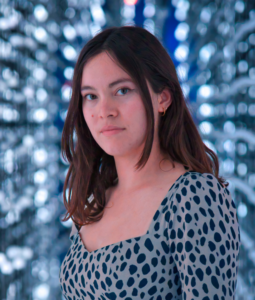
Diana (she/her) is a UCLA Chancellor’s Postdoctoral Fellow in the Lohmueller lab. Her primary research focuses on adaptation and conservation genomics. In her postdoctoral role, she is actively involved in multiple projects across various mammalian species, including Rice’s whales, Channel Island foxes, and mountain lions. She is investigating the genetic rescue and protection strategies for populations characterized by significant inbreeding and low genetic diversity. Diana is keenly interested in understanding how selection operates on these genomes. Before UCLA, she earned her BS in genomic science from the Universidad Nacional Autónoma de México (UNAM). During her Ph.D. studies in Computational Biology at the University of California, Berkeley, Diana worked under the supervision of Rasmus Nielsen. Her research during this period focused on color genomics in poison frogs and lizards, among other projects.
Chenlu Di 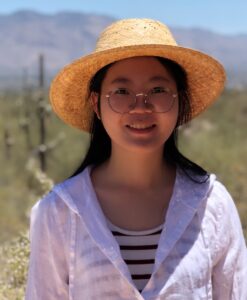
Chenlu joined the Lohmueller lab as a postdoc in January 2023. She is driven to understand how evolutionary mechanisms, such as natural selection, are involved in species’ survival and human health. She did her PhD with David Enard at the University of Arizona. Using population genetic methods and focusing on proteins, sh explored how the adaptation process is connected to human diseases and how adaptation against viruses. At UCLA, she is currently working on inferring the selection of non-coding mutations in humans using simulation methods and population genetic theory.
Undergraduates:
Lab Alumni:
Pedro Angel Perez Pedro was an undergraduate who majored in Biology. He helped his mentor Tina Del Carpio simulate the demographic histories of canid populations to determine if demography has influenced the recombination landscape of the domesticated dog. Outside of the lab, Pedro is a pre-medical student who is interested in eventually becoming a reconstructive surgeon. His hobbies include drawing, photography, calisthenics, bike riding, and video games. He is currently in medical school at USC.
Chris Kyriazis Chris was a postdoc in the Lohmueller lab from 2022-2023. He completed his PhD student in Ecology and Evolutionary Biology co-advised by Kirk and Robert Wayne. He is broadly interested in evolutionary and conservation genomics and is working on several projects investigating the genomic consequences of inbreeding and small population size in wild mammal populations and using simulations. Prior to coming to UCLA, Chris obtained a B.S. in Biological Sciences from the University of Chicago where he researched patterns of evolutionary diversification in birds and mammals from the Philippines and Madagascar. Chris is currently a Postdoctoral Research Associate at the San Diego Zoo Wildlife Alliance.
Stella Yuan was a PhD student in the Ecology and Evolutionary Biology program. Her general research interests are in the genomic evolution of small populations, evolution under inbreeding, and applying genomic and epigenomic tools to further conservation efforts.
Tina Del Carpio Tina Del Carpio (pronouns: they/them) began their PhD in the fall of 2017 in Ecology and Evolutionary Biology. They joined the Lohmueller lab in 2019. Tina’s research reflects their interests in both genetics and improving graduate education. They are estimating recombination rates in North American gray wolf populations and breed dogs to investigate how domestication has influenced the evolution of recombination rates. They are inferring recombination rates using both population linkage disequilibrium (LD) based methods and pedigree based methods. Tina is also studying the impact of UCLA’s Competitive Edge bridge program for new doctoral students from underrepresented minority (URM) backgrounds. They hope to learn the strengths and areas of growth of the Competitive Edge program to improve URM student experiences and retention at UCLA. Tina is currently a Research Data Analyst at the California Interagency Council on Homelessness.
Xinjun Zhang Jun was a postdoc in the Lohmueller Lab from February 2019-January 2023. Jun’s research lies at the intersection of empirical population genetics and statistical methods development, where she is particularly interested in the dynamics between admixture and selection. Jun is currently working on developing machine learning-based method to detect adaptive introgression, using extensive simulations to understand the influence of deleterious variants on the signals of positive selection, and the inference of dominance on the human genome. Jun was awarded a NIH K99/R001 grant and recently started as an Assistant Professor in the Department of Human Genetics at the University of Michigan.
Maria Izabel Cavassim Alves Izabel was a postdoc in the Lohmueller lab from November 2020-April 2022. She is interested in using comparative genomics to deepen our understanding of the evolutionary mechanisms that give rise to and maintain genetic variation. For her Postdoc, Izabel contributed to the PopSim project, investigated models of dominance for the human genome, and inferred the amount of recessive lethal mutations. Izabel is currently a Bioinformatics Scientist at Illumina.
Gustavo Valadares Barroso Gustavo was a postdoc in the Lohmueller Lab from October 2019-April 2022. He is broadly interested in gene expression and population genomics, using a combination of statistical modeling and data analyses to study evolutionary biology. During his PhD with Julien Dutheil, Gustavo develop the iSMC framework to infer recombination and mutation rates along the genome. His work with Kirk Lohmueller concerns the Distribution of Fitness effects. His main project focuses on short-term purifying selection using family trios. Gustavo is a postdoc at University of Wisconsin with Aaron Ragsdale.
Jesse Garcia Jesse completed his MS in Bioinformatics in December 2022. His interests focus on population genomics and conservation biology. He examined how purifying selection affects patterns of linkage disequilibrium across the human genome. Jesse was an undergraduate researcher in the Lohmueller Lab. Jesse is a Bioinformatics Scientist at Fulgent Genetics.
Annabel Beichman Annabel was a PhD student in EEB, co-advised by Kirk Lohmueller and Robert Wayne. She is currently a postdoc at the University of Washington with Kelley Harris. She is interested in using population genetics to investigate the effects of severe population bottlenecks on the sea otter genome, including changes in genome-wide diversity and the accumulation of harmful mutations. She is also working to estimate the demographic history of human populations using a coalescent approach and is investigating the effects of environmental pollutants on the gene expression of long-beaked common dolphins. Her past research includes using next-generation sequencing to investigate the baleen whale gut microbiome and surveying adaptive variation in purple sea urchins across the California coast.
Jazlyn MooneyJazlyn was a PhD student in the Genetics and Genomics program. After graduating, she was a postdoc at Stanford University with Noah Rosenberg. She is interested in implementing techniques from evolutionary anthropology, population genetics, and bioinformatics to examine patterns of human genetic variation. She studied the relationship between runs of homozygosity in the human genome and the distribution of deleterious variants. Jazlyn now is an Assistant Professor in the Department of Quantitative & Computational Biology at USC.
Eduardo Amorim Eduardo was a postdoc in the Lohmueller lab from December 2017-2018. He is currently a postdoc at the Dept of Computational Biology, University of Lausanne and will be starting as an Assistant Professor CalSate Northridge. His scientific interests range across a wide array of topics, including natural selection, mutation rates, ancient DNA, and anthropological genetics. In the lab, his research focuses on understanding the impact of domestication of dogs on the evolution of the distribution of fitness effects (DFE) and mutation rates. Besides that, he is involved in collaborations for the study of the demographic history of European populations, using both ancient and modern human DNA. Previously, Eduardo was a postdoc with Krishna Veeramah (Stony Brook), where he studied Barbarian societies from the Middle Ages in Europe, and before that with Molly Przeworski (Columbia University), where he studied the population genetics of Mendelian diseases in humans and the evolution of substitution rates in primates. Eduardo is an Assistant Professor at CalState Northridge.
Ying Zhen Ying was a postdoc working jointly with Kirk Lohmueller and Tom Smith and later an Assistant Project Scientist in the Lohmueller lab. Her research focused on using large scale population genetic data to learn about the demographic history and natural selection across a diverse array of non-model taxa from Central Africa. She was also interested in how and why adaptation varies across species. Ying previously was a postdoc with Peter Andolfatto at Princeton University, working on convergent evolution in an herbivore community and evolution of gene expression in Drosophila species. She received her Ph.D. from Kansas State University where she worked with Mark Ungerer on natural variation of freezing tolerance in Arabidopsis Currently Ying is an Assistant Professor at Westlake University, Hangzhou, China.
Clare Marsden Clare joined the Lohmueller lab in September 2013 on a Computational Biosciences Institute Postdoctoral Fellowship in Bioinformatics. Clare was a postdoctoral researcher and later an Assistant Project Scientist in the lab. She was involved in many of the projects in the lab during her time here. Her two main research projects were focused on studying patterns of deleterious variation in canids and forensic genetics. Clare previously was a postdoc at the University of California Davis conducting research into the population genetics and genomics of two African mosquito malaria vectors; Anopheles gambiae s.s. and Anopheles arabiensis. She completed her PhD on the evolutionary and ecological genetics of the endangered African wild dog (Lycaon pictus) at the University of Glasgow. Continuing on her passion for forensic genetics, Clare currently is a forensic DNA analyst at the LAPD crime lab.
Tanya Phung Tanya was a PhD student in the Bioinformatics program. Tanya worked on a variety of projects in the Lohmueller lab including those focused on how natural selection and mutagenic recombination affect genetic variation at neutral sites. She also found evidence of sex-biased demographic processes in dogs and wolves. Lastly, she is leveraging genome-wide association study data to learn about the genetic architecture of complex traits in an evolutionary context. Tanya did a postdoc with Melissa Wilson at ASU and is currently a Bioinformatics Scientist at Ambry Genetics.
Bernard Kim Bernard was a PhD student in the EEB program. He is particularly interested in the distribution of fitness effects (DFE) of new mutations. He developed the FitDadi software package to infer the DFE from large samples. He also worked on several projects pertaining to archaic introgression. Bernard is currently a postdoc with Dmitri Petrov at Stanford.
Christian HuberChristian was a postdoctoral researcher in the Lohmueller lab. Much of his research focused on using whole-genome population sequencing data to infer the distribution of fitness effects (DFE) and dominance coefficients of new mutations in different species. Christian did his master studies in physical anthropology and geometric morphometrics. He then switched to population genetics for his PhD at the Vienna Graduate School of Population Genetics, supervised by Ines Hellmann, Magnus Nordborg and Joachim Hermission. The topic of his thesis was the detection of selective sweeps on top of population structure and background selection, analyzing data from Arabidopsis thaliana and humans. After leaving the lab, he was a ARC Discovery Early Career Researcher Award (DECRA) Fellow at the Australian Centre for Ancient DNA at the University of Adelaide. Christian is currently an Assistant Professor at Penn State.
Diego Ortega Del VecchyoDiego was a PhD student in the Bioinformatics program jointly advised by Kirk and John Novembre. His research focused on exploring how haplotypic linkage disequilibrium patterns are affected by purifying selection. He used the information contained in those patterns to infer the distribution of the strength of negative selection across the human genome. He is currently an Assistant Professor at the National Autonomous University of Mexico.
Charleston ChiangCharleston was a postdoctoral fellow with Kirk and John Novembre at University of Chicago. His research focused on using large scale population genotyping and sequencing data to learn about past population history, detect signals of polygenic selection, and infer mutation rates. He is currently an Assistant Professor in the Center for Genetic Epidemiology at the Keck School of Medicine, USC.
Megan RoytmanMegan was a Bioinformatics rotation student in the Lohmueller lab in spring 2014. She joined the Pasaniuc lab.
Amy Chow Amy was an undergraduate student in the Lohmueller lab. She is currently a MS graduate student in mechanical engineering at San Diego Sate.
Jesse GarciaJesse was an EEB major at UCLA who is interested in population genetics and conservation biology. He also was a student in the UCLA B.I.G. Summer program. He is currently a PhD student in the Bioinformatics Graduate Program at UCLA and has joined the Lohmueller Lab for his PhD.
Norris KhooNorris was a Geology/Paleobiology B.S. Bioinformatics Minor at UCLA. He also was a student in the UCLA B.I.G. Summer program. He worked on analyzing patterns of linked selection in dogs and wolves. Norris currently a MS student in Computer Science at USC.
Maxwell LimMax was a Biology major at UCLA. He is using FitDadi to estimate the DFE for genes undergoing alternative splicing.
